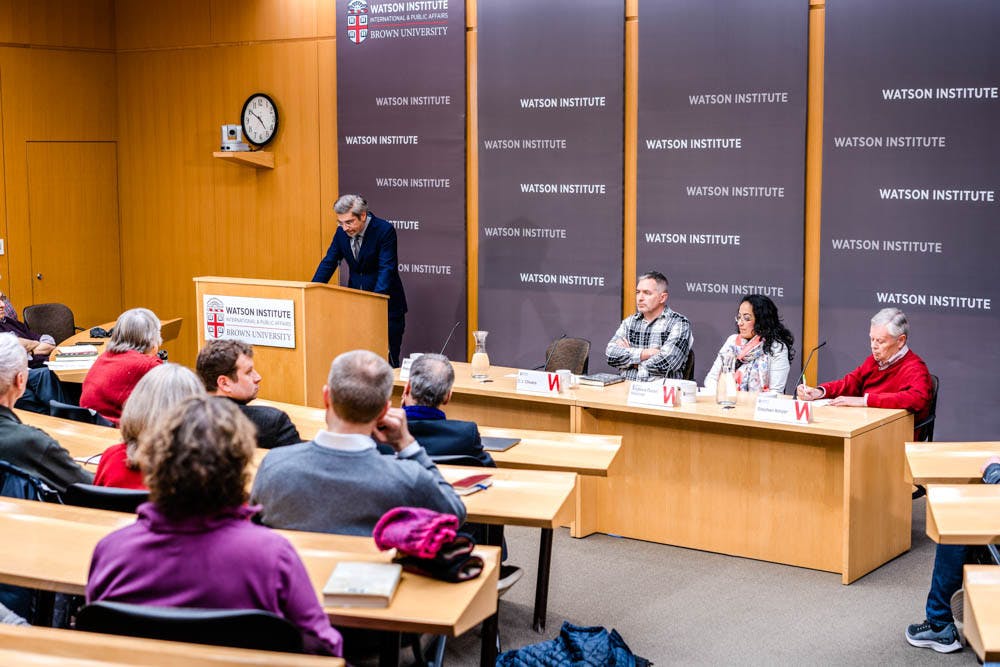Six drugs — cocaine, tobacco, opium, amphetamines, alcohol and caffeine. In “Killer High: A History of War in Six Drugs,” Peter Andreas, professor of international studies and political science and professor of international and public affairs, details how these six drugs have sparked, fueled and been popularized by war for hundreds of years.
Andreas spoke on his recently launched book at the Watson Institute of International and Public Affairs Thursday. “War made drugs and drugs made war,” Andreas told The Herald.
Andreas explored the relationship between drugs and war through a“five-dimensional approach,” he said. The first dimension explores “war while on drugs,” which includes the use of drugs during wartime to cope with stressful situations and celebrate victories, Andreas said. The second consists of “war through drugs,” entailing the use of drugs as a weapon of war. Another example is funding wars through alcohol, tobacco, cocaine and opium revenue. The third dimension deals with “war for drugs,” which addresses conflict motivated by desire for access to or control of drug markets. The fourth dimension, “war against drugs,” uses military and strategic resources to fight drugs, an approach that began with President Nixon declaring war on drugs in 1971.
The final dimension is “drugs after war,” which covers the change in consumer outcomes and preferences because of war. Andreas questioned why the United States is a coffee-drinking nation rather than a tea-drinking one. “Because we won the American Revolution, when the Brits went on to tea, we went on to coffee. … The very taste that we take for granted is actually the result of war,” Andreas explained during the discussion. Panelist C.J. Chivers, a writer for the New York Times and combat veteran, also spoke to this aspect of Andreas’ research, noting that prescribed drugs are deeply concerning for veterans after war, who receive limited or no counseling on the proper use of pharmaceuticals.
Andreas began his research for “Killer High” seven years ago. When he initially began writing, Andreas had a “bias towards thinking it’s about cocaine and heroin.” But Andreas was surprised by the importance of legal drugs. “It was pretty eye-opening to discover how important caffeine and alcohol and tobacco have been historically,” he added. Andreas also said that the word “coffee” was mentioned more times in soldiers’ diaries than the words “gun,” “cannon” or “rifle.” Despite Andreas’ research on the harm drugs have caused, he has an addiction of his own. “Caffeine is my drug of choice.”
Andreas wanted to find the “sweet spot” between writing good scholarship and accessible reading material for non-specialists. Panelist Angelica Duran-Martinez PhD’13, associate professor of political science at University of Massachusetts Lowell, said that the topics were presented so accessibly that she has assigned this book as a reading for her students. Chivers also held up his copy of Andreas’ book, which had handwritten notes scrawled over the pages. “When I get to the end of the book and I’ve used up two ink pens, it’s probably a sign that it’s a hell of a book,” he said.





